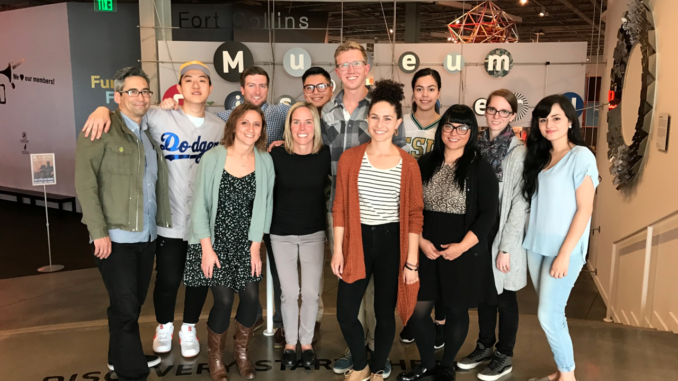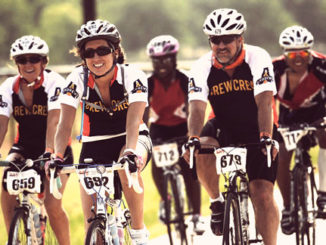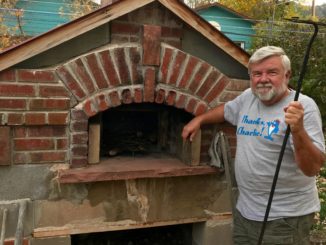
Colorado State University in Fort Collins is a land grant institution pledged “to provide access to opportunity to anyone with the motivation and ability to earn a degree.” CSU’s statement goes on to say, “We prize diversity and the rich history that different populations bring to the academic community—as well as the rich history of the land and region on which our university is built.”
Eric Ishiwata, associate professor of ethnic studies in the College of Liberal Arts at CSU, is living the university’s commitment. As an expert in community building, immigrant integration and refugee resettlement, Ishiwata guides “first generation” students at CSU as they participate in his newly formed Near Peer program, a mentoring program designed to support immigrant and refugee high school students in Fort Morgan, Colorado.
Probably the most diverse town in the state, Fort Morgan, population 11,000, is home to 20 different nationalities speaking 27 languages. It wasn’t always so. In 1990, the town was 83 percent white, 21 percent Latino. By 2010, 50 percent of the town was white, 43 percent were Latino and 18 percent were foreign-born. English is not spoken in the homes of more than a third of Fort Morgan residents. Not surprisingly, integration has not always been smooth in this once largely white, traditional, conservative rural town.
Since 2013, Ishiwata’s research focus has been on integrating these diverse populations. He has been consultant and forum facilitator, organizer of workshops and music festivals—all, ways to bring the townspeople together. Today, Fort Morgan is seen as a model for race relations.
Miguel Banuelos grew up and attended high school in Denver. As a first-generation college student at CSU in 2016, Banuelos joined The Key Community, a group designed to help new first generation students feel comfortable in the college environment, enhancing their chances of academic success. Key Community students were asked to become involved in a community service project. Banuelos, who had become part of a group focused on diversity and education, signed on to become part of Ishiwata’s on-going work in the Fort Morgan community.
It turned out to be a life-changing experience for him. Along with other first-gen students, Banuelos spent three long days interacting with Fort Morgan high school students enrolled in English as a second language classes. “I couldn’t believe all that these students were going through,” Banuelos said. “In addition to leaving their homes, they were dealing with learning another language, meeting high school requirements, and everything was happening so fast for them. They amazed me.”
The CSU students spent a relatively short period of time interacting with the Fort Morgan students, but Banuelos says they made the best of every moment. They read together, practiced speaking English, and, despite language challenges, found themselves getting to know each other.
The Fort Morgan students then came to the CSU campus for a day, an eye-opening experience for each of them. Banuelos was so committed to the high schoolers he met that he returned to Fort Morgan on his own to spend additional time with them.
“Sports is a great way to cement friendships,” he said, pointing out that soccer was a common interest for many of them. He noticed how quickly they were adapting to their new circumstances and also how willing they were to help each other.
“The experience opened my eyes and my mind,” Banuelos said. “Most of these kids already spoke several languages and here they were, learning another one.” He went on to say that his interaction with the Fort Morgan students helped him to improve his communication skills and made him realize how privileged he’d been to receive the education he did at his high school in Denver. It also led to his decision to major in communications and legal studies. He plans to attend law school with the goal of helping immigrants and refugees.
Fort Collins resident Amy Hoeven grew up in Sterling, 45 miles from Fort Morgan, and earned an interdisciplinary degree in liberal arts at CSU, where she studied technical journalism, communications and sociology. Ann Gill, dean of the college at the time, became her friend and advisor. When Hoeven returned to Fort Collins in 2008 after a career using her unique combination of skills, she and Gill renewed their friendship. The professor invited her to a Great Conversations event where Hoeven learned about Ishiwata’s work in Fort Morgan.
When Amy Hoeven walked down the street in Fort Morgan more than a year ago, she encountered a woman wearing a hijab. How out of place she must feel, Hoeven thought. She knew how limited the resources were in the area for helping these new residents to adjust to their strange new surroundings. She watched as the CSU students formed friendships with the high schoolers and she decided to find a way to spread the word about this powerful program.
Hoeven approached fellow CSU liberal arts graduates Kyle Rasmussen and Brandon Wooldridge, who produce interactive documentary films through their company, Blue Shoe Media. The resulting virtual reality documentary, Who I Am, tells the poignant story of several of the Fort Morgan students in their own words. Produced by Hoeven, it was shown for the first time in the OtterBox Digital Dome Theatre at the Fort Collins Museum of Discovery, with the Fort Morgan students in attendance. It was part of the Human Rights Film Festival at CSU, and in September was part of the Breckenridge Film Festival. It has only begun its travels.
Ishiwata’s program in Fort Morgan is now in its second year. A new group of first-gen CSU freshman will be interacting with Fort Morgan High School students and finding ways to encourage them to consider college as a realistic possibility. Hoeven is taking her documentary on the road, anxious to spread the word about what is possible. Banuelos isn’t officially part of the Fort Morgan program this year, but he plans stay in touch and return to Fort Morgan High School to meet with students whenever he can.
Support Northern Colorado Journalism
Show your support for North Forty News by helping us produce more content. It's a kind and simple gesture that will help us continue to bring more content to you.
BONUS - Donors get a link in their receipt to sign up for our once-per-week instant text messaging alert. Get your e-copy of North Forty News the moment it is released!
Click to Donate



